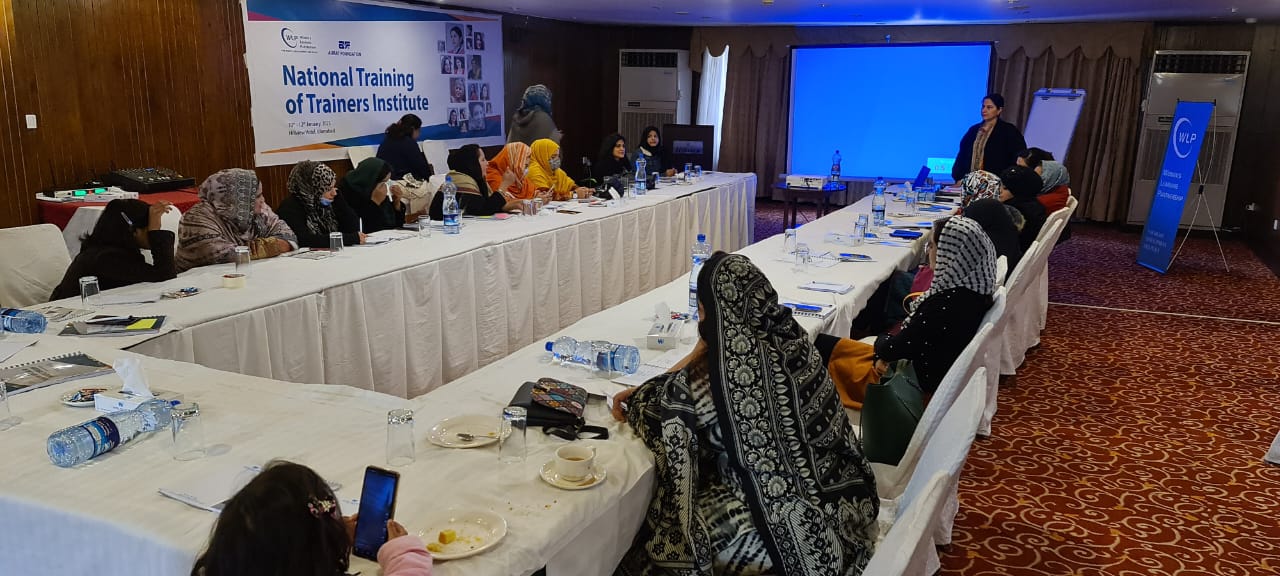
10-01-2023
Islamabad
National Training of Trainers Institute on Climate Justice
Aurat Foundation in collaboration with WLP organized a three-day national training of trainers Institute at Islamabad. Around 20 women activists participated from different walk of life women leaders of local government and social activists from different departments and person with disabilities. The training was conducted by the trained resource persons. The training involved an in-depth exploration of women’s leadership role to climate adaptation techniques for local women leaders, democratic political participation as well as discussion of nature of violence committed against women. The training covered The group also refined their strategic communications and messaging to advocate their rights.
The objectives of the training were to develop the inclusive, participatory, and horizontal leadership. AF trainers conduct the training sessions follow by “Leading to Choices” developed by the Women’s Learning Partnership for their partners. Leading to Choices is designed to be easily adapted to suit diverse cultural, political, and socio-economic needs of different audiences.
The trainees explored the strategies and made their action plans for strengthening the full, equal and meaningful participation and influence of women and girls where injustice occurs. They made their plans to promote women’s and girls’ full and equal participation and leadership in the designing and implementation of climate change, environmental policies and programmes moving forward. They highlighted that climate change has driven women into greater poverty. Many types of natural resources that used to be easily available and free, such as drinking water and native plants for foods, have diminished or are completely gone. In addition to the lack of resources, women who are facing direct confrontation. They get anxious, distressed, and experience a great sense of hopelessness. Women, are becoming more vulnerable to disaster-driven displacement due to informally created roles and responsibilities and male-controlled customs. Women tend to experience an incidence of sexual and gender-based violence, human rights abuses, an economic uncertainty, a lack of access to information, services and resources, along with discrimination in employment and land rights.
They will do efforts to amplify the voices and knowledge of marginalized women, including indigenous women, older women, women with disabilities, migrant women and those living in rural, remote, conflict and disaster-prone areas. |

